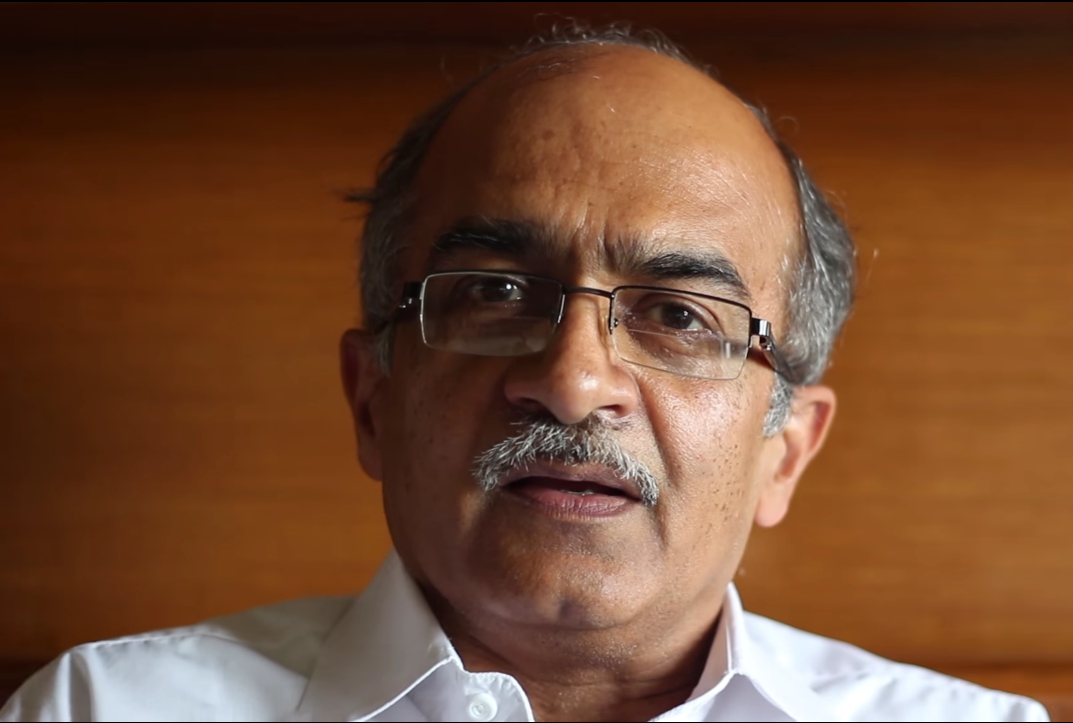Centre wants punishment for Bhushan in contempt case to act as deterrent

- Country:
- India
The Centre and Attorney General K K Venugopal took differing stance in the Supreme Court in their contempt pleas against activist lawyer Prashant Bhushan on whether he be punished for his tweets which alleged that the government had misled the court in a matter related to the appointment of interim CBI director M Nageswara Rao. Calling Venugopal 'Bhismpitama' and magnanimous in not seeking punishment for Bhushan, the Centre said it wants that punishment should be awarded to Bhushan as deterrence.
A bench of Justices Arun Mishra and Navin Sinha said however that punishment for a lawyer should be the last resort, and referred to its recent verdict in which it held that contempt is 'Brahmastra' which is to be used sparingly. The bench was hearing two contempt petitions filed separately by the Centre and the AG against Bhushan for the tweets.
Solicitor General Tushar Mehta, appearing for the Centre, argued that "statements like black day in the history of judiciary. Injustice has been done. These are partisan, subjective and designed statements made with a purpose". Referring to Venugopal as 'Bhismapitama' - a key character in the Mahabharat - Mehta said he is magnanimous and does not want punishment for Bhushan, but the Union of India wants punishment for him so that there is a deterrence.
At the outset, Venugopal, who has filed the plea in his personal capacity, said: "All I am seeking is that an end has to be put to this. It is the pending matter. It is being done. No one can go on making statements in a sub-judice matter. This is the right time that court settle this issue. Although I am not seeking punishment for my learned friend (Bhushan) but I want an end to this". Venugopal's plea referred to the extracts of the minutes of the meeting of the high-powered Selection Committee comprising Prime Minister Narendra Modi, Justice A K Sikri (as nominee of CJI) and leader of the largest opposition party Mallikarjun Kharge.
The Centre's plea also referred to the contents of Venugopal's petition and submitted that they be also read as part of its plea. Venugopal's petition referred to Bhushan's February 1 tweets in which he alleged that the government appeared to have misled the apex court and perhaps submitted fabricated minutes of the meeting of the high-powered selection committee.
Through his tweets, Venugopal said, Bhushan appeared to have deliberately intended to cast aspersions on the "integrity and honesty" of the attorney general who had placed the minutes of the meeting before the apex court during the February 1 hearing. On February 1, a bench headed by Justice Arun Mishra was hearing a petition filed by NGO Common Cause challenging the Centre's decision to appoint Rao, an IPS officer, as interim CBI director.
Venugopal said in his petition that Bhushan's tweets "scandalise or tend to scandalise and lower or tend to lower the authority of this court". He said during the hearing on February 1, he had handed over to the bench the minutes of meeting of the high-powered committee held on January 9 and January 10.
According to the petition, signatures of all the three members of the committee - were affixed in the decision taken by the panel. Venugopal said Bhushan, in one of his tweets on February 1, had said, "I have just confirmed personally from the leader of opposition Mr Kharge that no discussion or decision in HPC meet was taken re-appointment of Nageswara Rao as interim Director of CBI. The govt appears to have misled the court and perhaps submitted fabricated minutes of the HPC meeting."
The attorney general said the statement/ confirmation attributed to Kharge could never have been made by him for the simple reason that he himself had signed the minutes of the meeting which also contained the final decisions of the high-powered committee. "If the minutes of the meeting were to be fabricated, the members of the high powered committee who constituted the majority would have to be parties to such fabrication as their signatures are contained on the very same page on which the decision is recorded in the minutes," the plea had said.
(With inputs from agencies.)
- READ MORE ON:
- Prashant Bhushan
- Rajdeep Sardesai
- Aam Aadmi Party
- Attorney General of India
- Attorney general
- Solicitor General of India
- Central Bureau of Investigation
- Akkineni Nageswara Rao
- Alok Verma
- Supreme court
- Arun Kumar Mishra
- Ethics committee
- Audit committee
- Standing committee
- Chief Justice
- High Court of Justice
- Chief Justice of India
- Narendra Modi
- Modi ministry
- KK Venugopal
ALSO READ
US Senate committee to hold hearing on Boeing safety culture report
US Senate committee to hold hearing on Boeing safety culture report
We fulfilled all commitments made to people under PM Modi's leadership: BJP manifesto committee chairperson Rajnath Singh.
Man City''s Rodri on the bench against Luton after saying he needs ''a rest''
Cong candidates from Punjab, Haryana, Bihar and Delhi to be decided at central election committee meet










